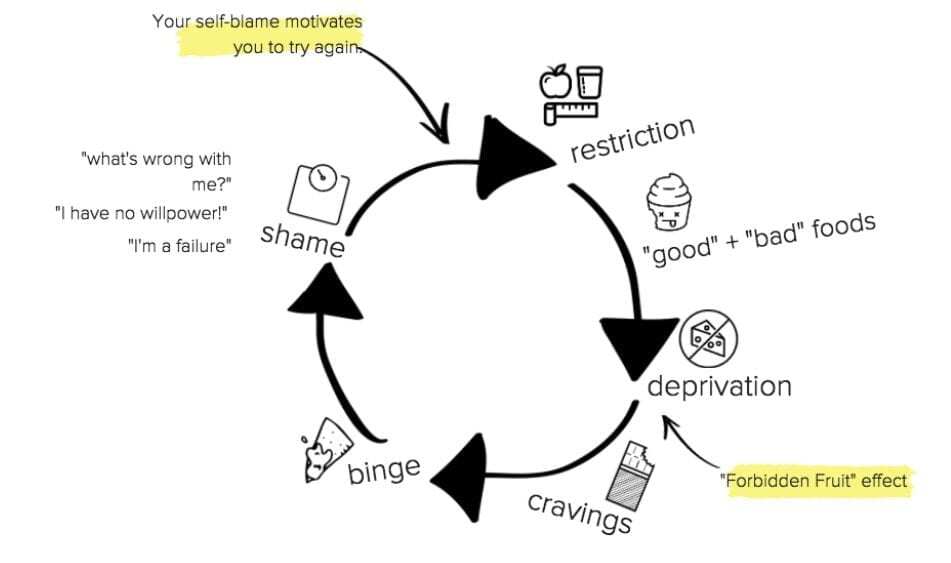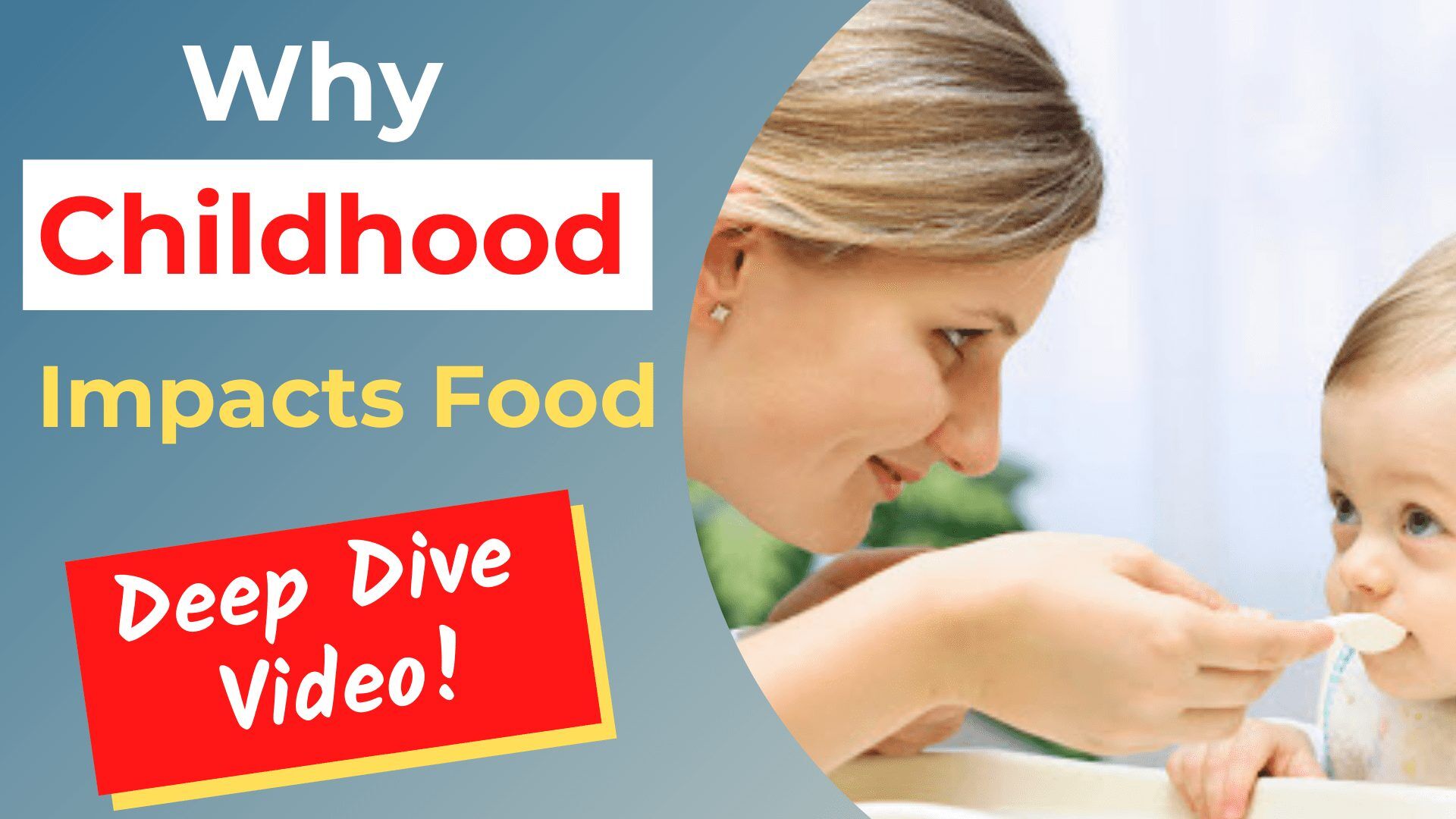This video explores how childhood attachment affect our eating habits and how to create sustainable eating habits for adulthood.
(Video note: I was trying new microphone and didn’t test sound before! My apologies.)
Many people turn to food for comfort, but when you have a traumatic childhood this can lead to emotional eating.
Emotional eating is defined as the compulsion to eat in response to emotions like stress, anger and depression. It’s not uncommon for adults who were neglected or abused during their childhood years to develop emotional eating habits.
The problem with these tendencies is that they are often cravings rather than hunger. So it becomes difficult for them to stop once they start on the binge-eating cycle.
Binge Eating Cycle

This can be extremely dangerous because binging on high calorie foods leads quickly into obesity which in turn raises risk of heart disease and diabetes.
The first step in breaking free from this destructive pattern is identifying your triggers – what situations make you crave food? Do you always find yourself eating something sweet when you get home from the office? Are there certain events in your life that make you feel sad or depressed – like an upcoming wedding?
If triggers include feeling sorry for yourself after a difficult day at work or when something negative happens, it can be important to recognize that this is a problem.
For some adults, indulging in emotional eating helps them deal with daily pressures. But it does not provide any real solution. The fact is that emotional eating can only temporarily help mask emotions. But it does nothing to address the underlying issues behind those feelings.
What To Do
The best thing to do if you’re dealing with emotional eating is to become more aware about the childhood patterns. Most people with these tendencies have an episode when they feel like something is driving them to overeat. This pattern repeats but they tend to ignore the signs!
This is why important for everyone to get in touch with their feelings! Feelings can be clues to events that remind you of your childhood patterns. If you connect the dots between your current life issues and those that were present during your early years, it can help you break the cycle of emotional eating.
Talking about what happened during your youth can also be instrumental in learning how to make yourself feel better without turning to food or alcohol.
Another good way of dealing with this childhood attachment issue is by getting a support team behind you who will provide encouragement. It may seem difficult at first because sometimes we find it hard to have anyone else in our lives. But by learning to connect with others you can start finding other ways of coping.
All it takes is some courage and a single step towards making your life better.




